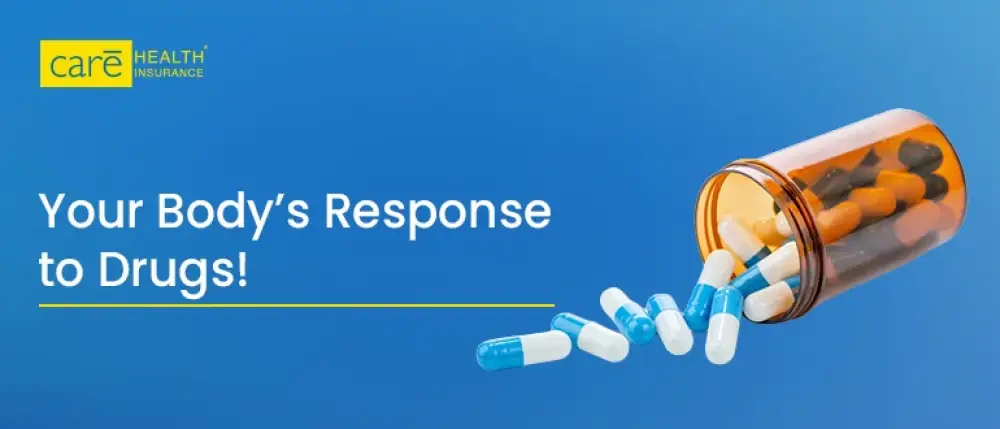Drugs can have a significant impact on your body—sometimes in ways we don’t even notice right away. Doctors might prescribe them to ease pain, manage health conditions, or even save lives in emergencies. But on the flip side, when drugs can negatively affect the body, they can throw off the body’s natural balance and cause serious problems.
So, how do drugs affect your body? That’s precisely what this blog is all about. We’ll break down how drugs interact with your brain, nervous system, and other organs, and why their effects can be so different depending on the type of drug and how it’s used. By the end, you’ll have a better idea of what really happens inside your body when drugs come into play—and why it’s so important to be aware of both the helpful and harmful sides.
What Are Drugs and Why Do They Matter?
Drugs are substances that change the way your body and mind work. They can be natural or synthetic, prescribed by doctors to treat health problems, or misused for recreational purposes.
On the positive side, drugs play a vital role in medicine—they help manage pain, control chronic illnesses, and even save lives in emergencies. But when taken without proper guidance, they can harm your health and affect how your body functions.
Drugs and Effects on the Body: Different Categories
When we talk about drugs and effects on the body, it’s essential to know that not all drugs work the same way. Each category affects your brain and organs differently:
- Stimulants (like cocaine, meth)
- Speed up brain activity.
- It can cause rapid heartbeat, high blood pressure, and insomnia.
- Long-term use may damage the heart and nervous system.
- Depressants (like alcohol, opioids)
- Slow down brain and body functions.
- May cause drowsiness, poor coordination, and slowed breathing.
- Overuse can lead to dependence, liver damage, or even overdose.
- Hallucinogens (like LSD, cannabis)
- Distort perception, mood, and reality.
- Short-term effects include confusion and altered senses.
- Prolonged use can trigger anxiety, paranoia, or memory issues.
- Prescription misuse (painkillers, sedatives)
- Designed to be helpful when used correctly, but misuse can be risky.
- It can harm the liver, kidneys, and brain.
- Increases chances of addiction and accidental overdose.
Each category shows how drugs can impact the body in unique yet harmful ways if not used responsibly.
How Can Drugs Affect Your Body on a Physical Level?
When we look at how drugs can affect your body, here’s what happens on the inside:
- Heart: Some drugs make your heart beat faster or unevenly, which can raise the risk of heart disease over time.
- Lungs: Smoking or inhaling drugs can damage the lungs, leading to breathing issues and long-term respiratory problems.
- Liver: Since your liver processes toxins, drugs can overwork it, causing scarring or even liver failure.
- Kidneys: Filtering out harmful substances puts extra stress on the kidneys, which may lead to kidney damage.
- Immune system: Regular drug use can weaken your immunity, making you more likely to get sick.
Over time, these effects can turn into serious chronic illnesses like heart disease, lung disorders, liver problems, and even organ failure.
How Do Drugs Affect Your Mind and Emotions?
Drugs don’t just change your body—they also influence how your brain works and how you feel. Here’s what can happen:
- Mood swings: Drugs can trigger extreme highs and lows, making emotions more challenging to control.
- Memory problems: They can affect how your brain stores and recalls information.
- Anxiety and depression: Many drugs interfere with brain chemicals, which can lead to ongoing mental health struggles.
- Addiction: The brain craves the “reward” drugs create, making it harder to stop using them.
- Poor decision-making: Drugs can cloud judgment, leading to risky behaviour.
- Sleep issues: Some substances disrupt natural sleep cycles, leaving you restless and drained.
Over time, these effects can make it more challenging to maintain healthy relationships, stay productive, and maintain a stable mental state.
Prevention and Healthier Alternatives
The best way to avoid the harmful side of drugs is to focus on healthier coping strategies. Here are some simple alternatives:
- Healthy coping mechanisms: Activities such as exercise, journaling, or practising mindfulness can help manage stress without relying on substances.
- Lifestyle changes: Eating well, staying active, and getting enough sleep naturally boost your mood and energy levels.
- Professional help: Consulting a counsellor, joining support groups, or seeking medical guidance can make recovery and prevention easier.
>> Read More: Holistic Health: Integrating Alternative Medicine with Traditional Coverage
Final Words
Drugs can change the way your body and mind work, sometimes in ways that feel good at first but can turn harmful over time. From damaging vital organs to affecting mood, memory, and decision-making, the risks are real—and they often show up when least expected. The good news is, you always have healthier choices. Whether it’s staying active, managing stress through simple habits, or seeking professional support, these small steps can make a significant difference in keeping you strong and balanced.
And while prevention is the best protection, life can still surprise us with challenges. That’s why having a reliable health insurance plan matters. It acts as a safety net, covering unexpected expenses and providing you with peace of mind so you can focus on building a healthier future instead of dealing with a financial burden. After all, protecting your well-being isn’t just about avoiding harm—it’s about being prepared, too.
Disclaimer: All plan features, benefits, coverage, and claims underwriting are subject to policy terms and conditions. Kindly refer to the brochure, sales prospectus, and policy documents carefully.
